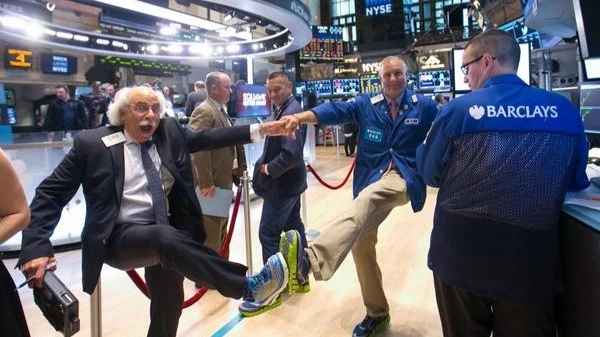No vacation: what awaits stocks in August - historically one of the worst months of the year?
In the years following the U.S. election, August was becoming the worst month for stocks since February

The first day of August this year was the worst for U.S. stocks since May, with the S&P 500 U.S. broad market index falling 1.6 percent and the so-called Wall Street Fear Index climbing above the psychological 20-point mark. The sell-off was triggered by Donald Trump's new duties and unusually weak labor market statistics, which raised fresh recession fears.
The very next trading day, investors recovered the entire drawdown. Nevertheless, some analysts warn: as before, August can still bring unpleasant surprises to the markets. Why investors do not like this month and what professionals advise beginners - in this material;
What history teaches investors
Historically, August is one of the two worst months for U.S. stock returns, with the S&P 500 Index averaging a 0.6% decline in the last month of summer from 1988 through 2024. This data is cited by Stock Trader's Almanac magazine, whose analysts have been tracking the indexes since the magazine was founded in 1967.
In years after the U.S. election - which is what 2025 is - August has been the worst month for stocks since February, noted analysts at the Carson Group. The Asian crisis of 1997, the Russian default in 1998, the European banking crisis in 2010, the downgrade of U.S. government debt in 2011 - these catalysts caused the S&P 500 Index to plummet between 4.7% and 14.6% for the month. Last August, after an unexpected rate hike by the Bank of Japan and the release of weak statistics in the U.S., the S&P 500 index lost 3% in just one day, while the VIX volatility index (also known as the fear index) soared 180%. However, the panic quickly subsided and the U.S. stock market ended August in the plus.
Why August
"I think the issue is that a lot of the big money managers are on vacation at this time," explains Carson Group chief market strategist Ryan Dietrich. - When big news comes out, the market reacts much more sharply than usual because trading teams are frantic and emotions are running high because many key players are absent."
In his opinion, technical factors play an additional role: with low trading volumes, even small orders can move the price, increasing volatility. This is due to the fact that in conditions of weak liquidity there are fewer counter bids in the market, and any movement more quickly develops into a sharp jump.
Jeffrey Hirsch, editor-in-chief of Stock Trader's Almanac, agrees that August is an unfavorable month for investing due to seasonally lower trading volumes. After the Fourth of July holiday weekend, market activity gradually wanes - many participants leave trading floors and liquidity is reduced. This makes the market more vulnerable: in the absence of investor confidence, summer rallies are often short-lived and can quickly turn into a pullback or correction, he writes.
What to expect in 2025
Big investors have started stepping up the defense of their portfolios well in advance, fearing a repeat of last year's sell-off in August due to new duties and tensions in the Middle East, wrote Reuters. "It's clear to everyone - this summer is full of market catalysts, so far fewer people will go on vacation," said Jerry Fowler, head of European equities strategy at UBS.
According to the opinion of IG chief analyst Chris Beauchamp, even though this August is different from last year - bigtechs have issued strong reports and risks in the carry trade have faded - markets are still vulnerable. Investors are still reacting keenly to economic surprises - such as inflation data that could change Fed rate expectations. If the Consumer Price Index (CPI) comes in higher than forecast in August, it could undermine hopes for a rate cut soon - as happened in 2024. Back then, unexpectedly high inflation triggered a sharp revision in expectations and a wave of sell-offs. Now, despite a more stable background, there is still a risk of such a scenario repeating.
What investors should do
Zacks Investment Research warns that August could bring volatility on several fronts. First, the "sell on the news" phenomenon is at work, where after positive events - such as the Trump administration's trade agreements - investors lock in profits and the market goes into a correction. Second, the "Buffett indicator" hit a new high, indicating the stock market is overheating. These signals, analysts say, point to heightened risks. "Now is a good time to take your foot off the gas pedal," Zacks emphasizes.
A similar, but more macroeconomic viewpoint is expressed by Eric Sterner, chief investment officer at Apollon Wealth Management. He points out that despite recent stimulus - Congressional approval of Trump's budget bill and the conclusion of trade talks - the market is overheating. "The rally is justified, but the appetite for risk is excessive. I think we're in for a pullback in low quality stocks: the labor market is slowing and GDP data signals a slight slowdown in the economy. So I would caution investors: now is not the time to completely ignore the risks," Sterner says.
Against the background of multidirectional signals, IG analyst Chris Beauchamp emphasizes the behavioral strategy. He stresses that the main advice for investors remains unchanged: one should prepare for volatility in advance, not react to it in the moment;
"Don't expect a simple repeat of last year's scenario," Beauchamp warns. - Each market cycle is unique and requires a customized strategy. Risk management is especially important, he says: "By determining the optimal amount of investment, maintaining adequate liquidity and having clear exit strategies, you can successfully navigate through whatever form of volatility this August brings."
This article was AI-translated and verified by a human editor
